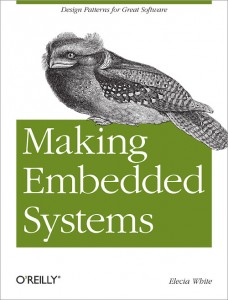I never expected to recommend a zombie apocalypse book to anyone. I don't read horror and I don't like zombie movies (excepting Shaun of the Dead, of course).
So, when a zombie book was on my Hugo ballot (so worth it!), I grudgingly read it. Actually, to keep the stakes low, I started with the Hugo-nominated novella. It was good, it had promise, a good wind up story, and excellent Once upon a time.
I figured I would read the Hugo-nominated novel (once you pay your bucks, you get a bunch of books, might as well read through them), even though the novel was the second in a trilogy. Basically, cynic that I am, I wanted to know whether it was worse than Martin's Thrones book (ahem, not a fan) so I could do my judgely duties.
The zombie book got me on the first page. It sucked me in so much that at the end of the first chapter of my free book, I went back to the first book in the trilogy, bought it, and devoured it. Then back to the Hugo packet to read the second. Then bought the third. It was a weekend where I got very little done. And then, two weeks later, I re-read all three because I'd been thinking so much about them. (Calibration: My usual re-read rate for books I like very much is once a year.)
Before I go on, I should at least give you a link to the books. The first one is Feed by Mira Grant. Start there. The novella was Countdown down but it is a prequel/origin story so maybe save it. You can find the other books from there. One itty-bitty spoiler: at the trilogy end, there is an end. Kind of refreshing, actually.
Inexplicably, I'm still thinking about these books that are about the zombie apocalypse. I find myself applying them to the world at large. It is a little weird. Maybe if I tell you about them, it will be some sort of catharsis and I won't have to think about them any more. (Doubt it.)
Fear does not make you safe.
When we heard about the horrible, senseless tragedy in Colorado, the tickets we had for the noon showing of Batman were not as shiney as they had been the day before. Terrorist? Whack job? Did it matter? Why should this nutter stop us from seeing this movie? Or taking the fun out of it?
And not just current events, this applies to all of the times where it is easier to avoid something that seems scary. Even taking a Tylenol. But being afraid doesn't make anyone safe. Being vigilant (and, according to the zombie books, armed) can keep me safe. But just being afraid and hiding? Not so much.
Another theme of the trilogy is that people in power will use fear to keep people complacent, an illusion of safety through control. Anyway, I didn't highlight this as a lesson learned because I think it should be self-evident to anyone paying attention to TSA and the War on Terror. But let's move on…
Politicians should check with six-year-olds.
In one scene in the book (not a spoiler), a character says that the president should have run his plan by a child. If the child says that the president will never get anything in his stocking but coal ever again, well, maybe it isn't a good plan. This seems like a good idea to me. Maybe then we could avoid murder drones, and broken promises.
What happens to make it all complicated? Sometimes it isn't. Sometimes there is right and there is wrong. I tend to live in a very gray world, really able to see reason in both sides of just about every issue. And yet, I hope my actions are mostly on the side of good. And I agree that six-year-olds have an intrinsic morality (thought it can be bloodthirsty).
I like Seanan McGuire's writing very much.
(Mira Grant is a pen name.) And now I've got a couple whole series to read. In fact, I read Rosemary and Rue this afternoon, a different series in a different world. It was urban fantasy not science fiction (not horror). And no zombies. Which is fine for now, but I do hope there are some zombies in the future.


